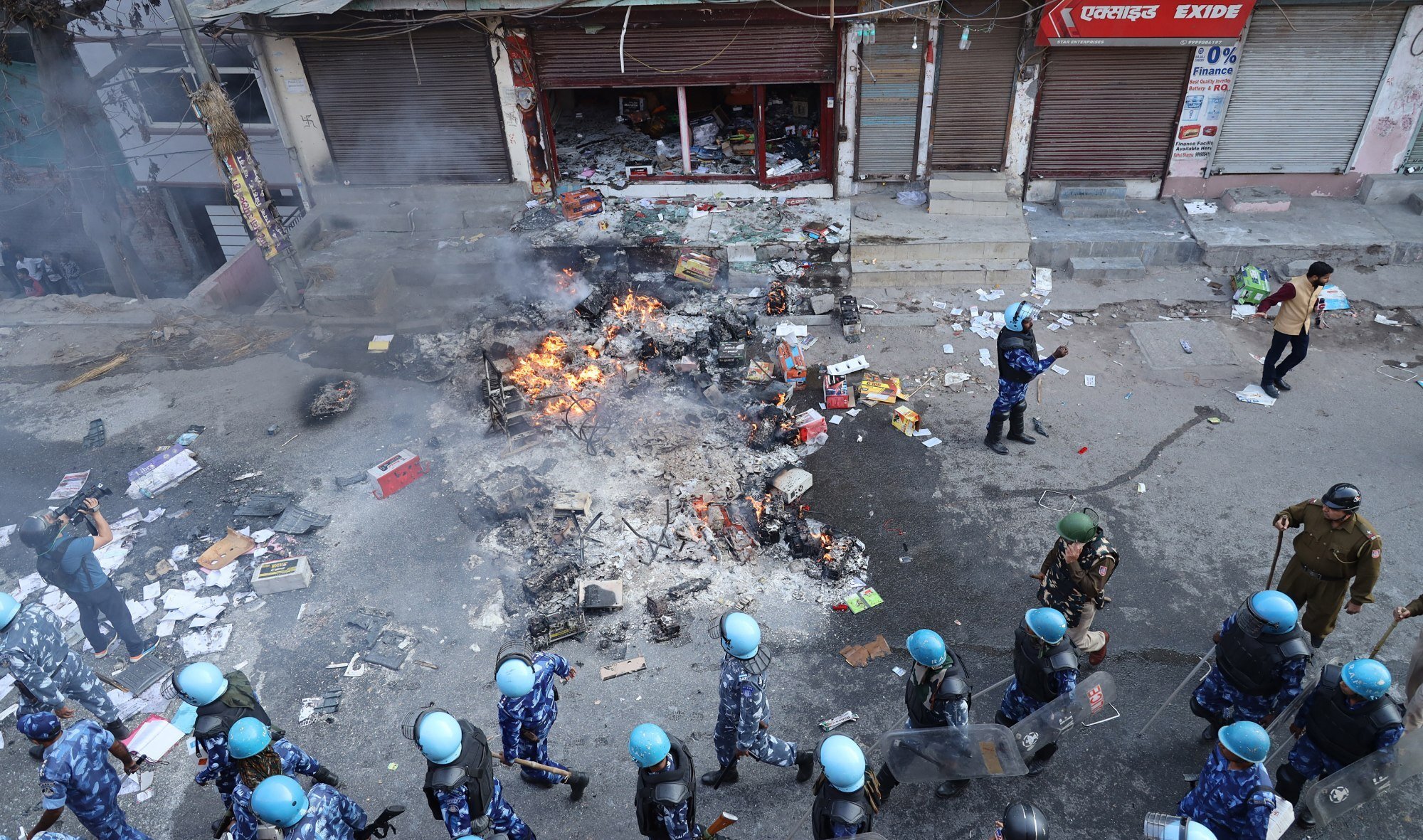
By Adnan Bhat
Multimedia journalist Shahid Tantray does not tell people his name any more, unless he really has to. He stopped after being attacked by an angry mob in New Delhi last year for the “crime” of being Muslim.
The Indian capital’s northeast had just been rocked by six days of brutal communal riots that claimed at least 52 lives – most of them Muslims – and Tantray was reporting on the aftermath of the violence for The Caravan magazine when he was approached by a group of men who demanded to see his press card.
After realising he had a Koranic name, the men began hurling abuse at Tantray and ordered him to delete the photos he had taken in their neighbourhood. “I tried to calm them down but the crowd kept growing. Some of them started to slap me but I refused to delete the photographs I had taken,” he told This Week In Asia.

The mob refused to relent even after the police arrived, following Tantray and his colleague to the local police station where the pair were forced to hole up for hours on end until the crowd outside finally dispersed. “My editors have been very supportive [since the incident],” Tantray said. “I have been advised to prioritise my own security.”
Even in the absence of direct threats or attacks, Muslim journalists in many parts of the country regularly have to contend with an undercurrent of Islamophobia that not only makes it difficult for them to do their jobs, but also sees them targeted for online harassment.
“Officials, especially police, have often asked me about my ‘motivations’ for doing a story,” said Ayesha Minhaz, a freelance journalist based in the southern city of Hyderabad. “As a Muslim woman journalist, you are made deeply aware that you don’t have to work on sensitive stories to be hated in the Hindutva ecosystem, your existence is a reason enough.”
altogether, as although she said she feels “I may not be protected from the violence that I’ll face someday … at least I don’t have to read about what they want to do to me every time a story [of mine] gets published”.
For Dhanya Rajendran, editor of Bangalore-based news website The News Minute, the fact that she even has to think about a reporter’s religion before sending them out to cover a story is “pathetic”.
“During the Sabarimala temple protest, there was a lot misinformation being spread on Twitter by one of the members of the BJP about Muslim journalists. Although they eventually took it down, it had caused a lot of damage,” Rajendran said, adding that after a woman reporter from her team was assaulted “we sent a Muslim male reporter to cover the protests only because he had a Hindu sounding first name [and] even then we asked him to be careful.”
India ranked 142nd for press freedom in the latest report from international NGO Reporters Without Borders, behind war-torn Afghanistan and South Sudan. The country was also downgraded to “partly-free” from “free” earlier this month by the US-based Freedom House’s Freedom in the World Report 2021.
C K Prasad, a former Supreme Court judge and chairman of statutory watchdog the Press Council of India, dismissed reports of a decline in press freedom in the country as “totally unscientific”, saying “if a journalist is killed in a road accident, you can’t say there is a decline in freedom of the press”.
He said his organisation had not received any official complaints about reporters being harassed because of their religion, but added that “if a journalist has been harassed, particularly by the state agencies, we are here to support them and protect their rights”.
Yet that is of cold comfort to Omar Rashid, a reporter with national daily The Hindu who was briefly detained and questioned by police in Uttar Pradesh in December 2019 while covering protests against India’s controversial Citizenship Amendment Act.
Though the incident scared him, he said it had not stopped him from reporting – even though it also spooked his employers, who have since asked him to be extra careful and avoid going out on assignment alone.
In India, “there are not many Muslim journalists around in the first place and secondly, it is easy to target them [so] in case they are accused of anything … the punishment would be severe,” Rashid said.
In October last year, police in Uttar Pradesh arrested Muslim journalist Siddique Kappan as he was on his way to report on the murder and gang-rape of a teenage Dalit girl in the state.
The 41-year-old was accused of instigating caste-based violence and jailed under the controversial Unlawful Activities Prevention Act. He remains incarcerated to this day.
This story was first appeared on scmp.com
